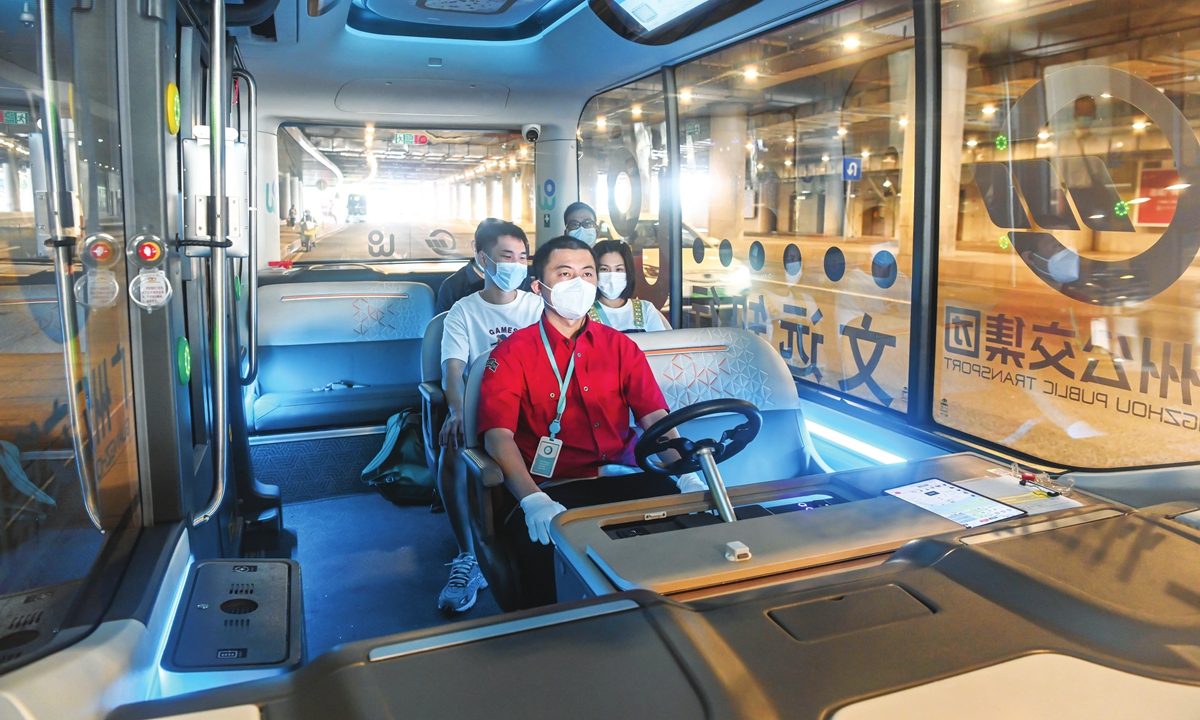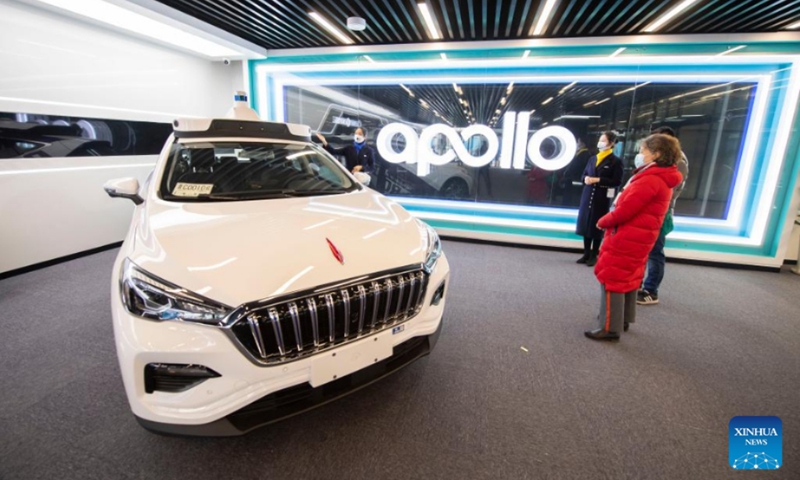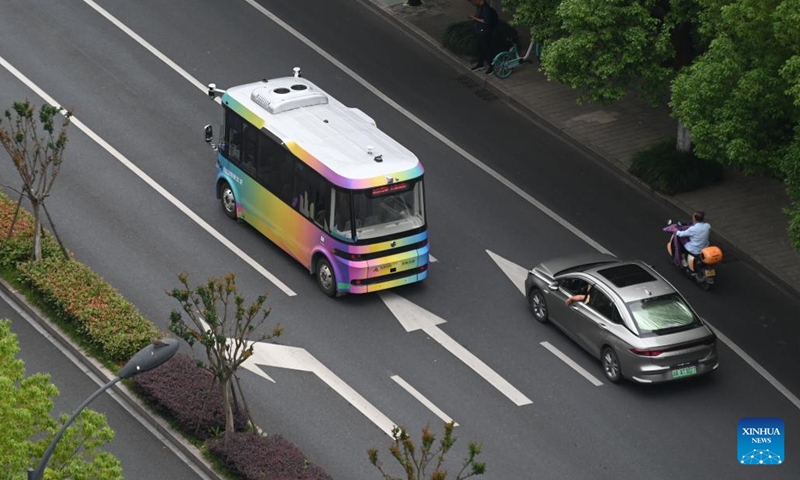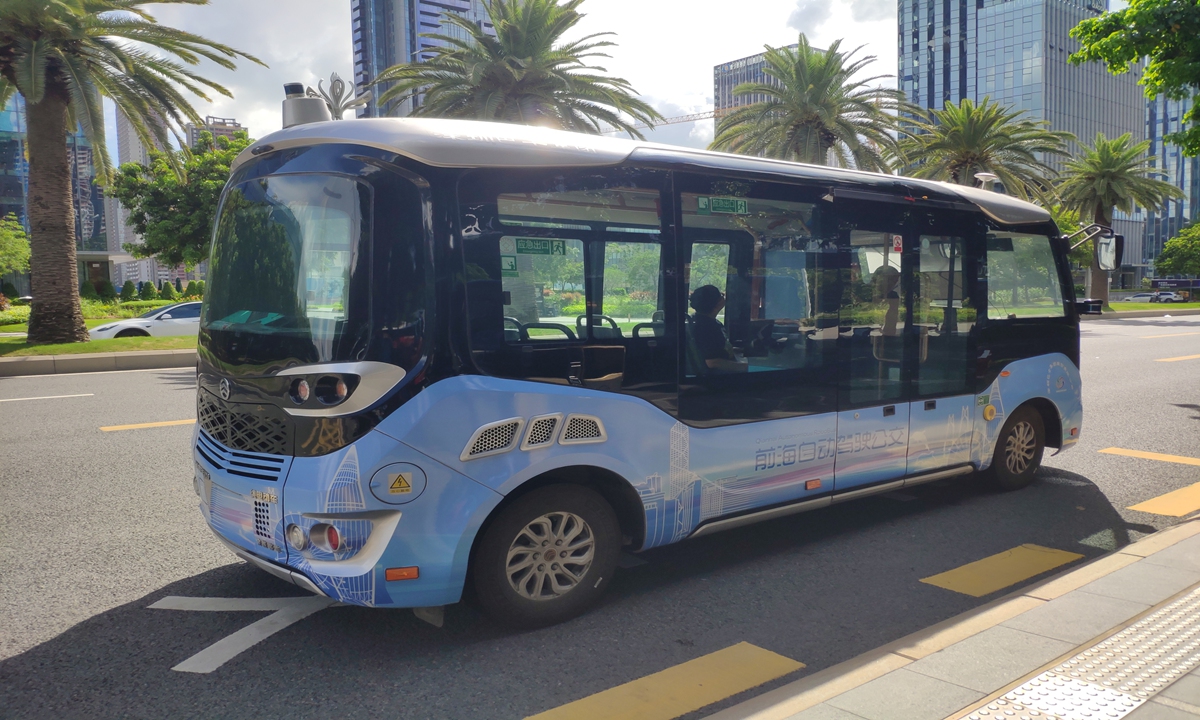
Passengers in an autonomous driving bus in Guangzhou Photo: VCG
The city government of Guangzhou in South China's Guangdong Province has released a draft proposal seeking public opinions for the innovative development of intelligent connected vehicles (ICVs). This draft standardizes the use of ICVs in specific scenarios, a significant step in improving China's autonomous driving regulations.
The city will support ICVs in key scenarios such as highways, airports, ports and urban transit services. The city plans to expand ICV operations and open roads for mixed traffic, with a strong emphasis on safety and data management.
The draft states that if an autonomous vehicle is involved in a traffic violation, the traffic management department can legally hold the driver or on-board safety officer accountable. If there is no such person, the vehicle's pilot entity or operating entity will be held responsible.
According to the draft, related companies must ensure on-board equipment records and store data on location, operation, driving mode and surveillance footage for at least 30 days before and after accidents or malfunctions take place.
"Passenger insurance and responsibility for accidents are mentioned in the draft, making sure passengers are safer and better protected," Wu Shuocheng, a veteran automobile industry analyst, told the Global Times on Thursday.
The draft also standardizes the system for vehicle-road-cloud integration. City and district governments are required to establish sustainable investment, construction and operation models for ICV infrastructure. Market participation is also encouraged.
ICV-related enterprises can apply to transport and urban management departments to build vehicle-road coordination infrastructure on public facilities, and relevant departments should support these initiatives, provided safety standards are met.
"Collaboration between governments and companies should be encouraged, as the government cannot manage many tasks directly, such as operating certain types of artificial intelligence," said Wu.
"For example, governments can authorize some autonomous driving companies to collect data, like map data, to advance the technology," Wu said.
Additionally, the draft stipulates that the city government will gradually and systematically advance the construction of pilot zones for mixed human and autonomous driving. It also mandates opening all roads within the city's administrative region for ICV operations and promoting interconnectivity with open roads in neighboring cities.
Globally, China's development of autonomous driving is both rapid and well-established, largely due to policy advantages, experts said.
The Chinese government's strong commitment to developing ICVs and systems for vehicle-road-cloud integration aims to gain greater influence and leadership in the automotive industry, according to Wu.
The draft encompasses industrial development, vehicle-road-cloud integration, innovative applications, safety assurance and legal responsibilities. It is scheduled for a second review and vote in August.
"Guangzhou's regulations are thorough and cover many areas, signaling China's strong push to advance autonomous driving. More major cities are likely to follow suit. However, the pace should be steady, gradually achieving large-scale commercialization," Wu said.
Guangzhou now operates autonomous driving buses and taxis, and it has introduced Apollo Go and Pony.ai autonomous ride-hailing services. There are 50 autonomous buses in operation, covering 10 routes across the city. As of June 30, these buses had made 525,000 trips, served 1.073 million passenger trips and traveled 1.742 million kilometers.
Guangzhou is not the first Chinese locality to propose ICV legislation. More than 10 others, including Beijing, Shanghai and East China's Jiangsu Province, have made significant progress.



